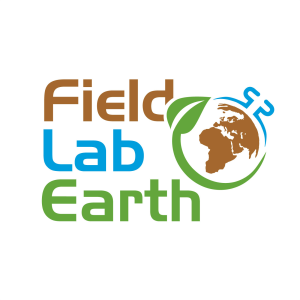
Field, Lab, Earth
Science Podcasts
Past and present advances in the fields of agronomic, crop, soil, and environmental sciences. Enjoy interviews with researchers published in journals, books, and magazines from the American Society of Agronomy, Crop Science Society of America, and Soil Science Society of America. Opinions and conclusions expressed by authors are their own and are not considered as those of the American Society of Agronomy, Crop Science Society of America, Soil Science Society of America, its staff, its members, or its advertisers.
Location:
United States
Genres:
Science Podcasts
Description:
Past and present advances in the fields of agronomic, crop, soil, and environmental sciences. Enjoy interviews with researchers published in journals, books, and magazines from the American Society of Agronomy, Crop Science Society of America, and Soil Science Society of America. Opinions and conclusions expressed by authors are their own and are not considered as those of the American Society of Agronomy, Crop Science Society of America, Soil Science Society of America, its staff, its members, or its advertisers.
Twitter:
@fieldlabearth
Language:
English
Website:
http://fieldlabearth.libsyn.com/
Leaf Mold Compost for Urban Agriculture with Kyle Richardville
Duration:00:35:56
2024 Blooper Reel
Duration:00:07:24
Combatting Drought with WAPs with Dr. Sanandam Bordoloi
Duration:00:36:32
Phytoremediation for Urban Agriculture with Marie-Anne Viau and Dr. Adrian Paul
Duration:00:51:32
Improving Maize Pollination Efficiency with Dr. Dylan Schoemaker
Duration:00:38:35
Bioenergy Cropping on Marginal Lands with Dr. Dileepa Jayawardena
Duration:00:37:01
Soil-Landscape Rehabilitation with Dr. Sharon Schneider
Duration:00:35:45
Recalibrating the Pennsylvania PSNT with Dr. Charlie White
Duration:00:49:54
Precision Agriculture for Improving Wheat Yield and Quality with Olga Walsh
Duration:00:40:39
Mitigating Coastal Eutrophication with Drs. Wafa Malik and Patrick Durand
Duration:00:41:39
Latent Variable Phenotypes in Lentil with Sandesh Neupane and Derek Wright
Duration:00:40:10
Phosphorus Conservation Practice Trade-offs with Drs. Peter Kleinman and Deanna Osmond
Duration:00:51:50
Halloween Special: Fall Armyworm with Drs. Sandra Woolfolk and Leigh Hawkins
Duration:00:35:46
Food Waste Microplastics with Kate Porterfield and Dr. Eric Roy
Duration:00:55:44
Environmental Effects on Garlic Quality with Dr. Pablo Cavagnaro
Duration:00:56:02
Microbial Function in Restored Wetlands with Amelia Fitch
Duration:00:42:30
Pesticide Potential in Tailwater Recovery Systems with Dr. Matt Moore
Duration:00:58:50
100th Episode Funstravaganza
Duration:00:25:20
Cover Crop Questions with Drs. Joby Czarnecki and Beth Baker
Duration:00:46:26
Recovering Amaranth Seeds from Manure with Drs. Anthony Brusa and Melissa Wilson
Duration:00:47:16